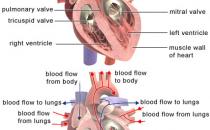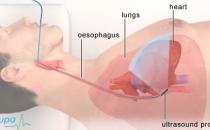Beta-blockers

Published by Bupa's health information team, September 2009.
This factsheet is for people who are taking beta-blockers, or who would like information about them.
Beta-adrenoreceptor blocking drugs, or beta-blockers for short, mainly work on the heart and blood vessels where they act to reduce blood pressure and the amount of work the heart does. They are also used to reduce anxiety symptoms and help prevent migraines.
Why would I take beta-blockers?
What are the main types of beta-blocker?
How do beta-blockers work?
How to take beta-blockers
Special care
Side-effects of beta-blockers
Interactions of beta-blockers with other medicines
Names of common beta-blockers
Why would I take beta-blockers?
Your doctor may prescribe beta-blockers for you if you have:
• angina
• high blood pressure
• disturbance of the normal heart rhythm (arrhythmia)
• heart failure
If you have had a heart attack, taking a beta-blocker reduces your risk of having another one. Beta-blockers are also used to relieve the symptoms of anxiety, such as palpitations, fast heart rate and trembling. However, they will not stop the feeling of anxiety itself.
Your doctor may suggest beta-blockers to help prevent migraines. If you have an overactive thyroid gland, you may be given beta-blockers before an operation to remove it.
There are also eye drops containing certain beta-blockers that are used to treat glaucoma, an eye condition caused by a build-up of pressure in the eye.
What are the main types of beta-blocker?
There are many different types of beta-blocker, which block the action of different types of beta-adrenoreceptors (see How do beta-blockers work?). Some work on all parts of the body that have beta-adrenoreceptors. Others are more specific and work only on specific parts of the body, such as the heart. Beta-blockers that affect mainly the heart are called cardioselective beta-blockers.
How do beta-blockers work?
Beta-blockers work by blocking the action of a natural substance called noradrenaline at special sites called adrenoreceptors in arteries, on the heart muscle and on some other muscles and organs.
A chemical messenger called noradrenaline causes arteries to narrow and the heart to beat faster. By blocking its action, beta-blockers can cause arteries to widen, slow down the heart and decrease its force of contraction. This results in a drop in blood pressure and less work for the heart.
Beta-blockers don't have much of an effect on the heart when you are at rest. But they partially block the effects of exercise or excitement (when noradrenaline levels rise) on the heart so that it doesn't work too hard at these times.
How to take beta-blockers
Beta-blockers are available only on prescription. They come as:
• tablets or capsules
• syrup or solution
• injections
• eye drops (for glaucoma)
The way you take beta-blockers depends on why you need them. For example, you may be given an injection of a beta-blocker in hospital if you have a heart attack.
The effects of some beta-blockers do not last very long, so if you need beta-blocker tablets to help control a long-term condition such as angina, you may need to take them once or twice a day.
Beta-blockers may be prescribed in combination with other drugs such as water tablets (diuretics) or calcium-channel blockers.
Don’t stop taking a beta-blocker suddenly because this may make your symptoms worse. If you need to stop taking them, your doctor will tell you how to reduce your beta-blockers gradually.
Always ask your doctor for advice and read the patient information leaflet that comes with your medicine.
Special care
Beta-blockers also affect other organs in the body, such as your lungs and muscles. Your doctor may not prescribe beta-blockers for you, or will need to monitor you closely, if you have:
• asthma or other breathing problems
• severe heart failure
• severe narrowing of the arteries that carry blood to your arms and legs (peripheral arterial disease)
• low blood pressure
• slow heart rate
• diabetes – because beta-blockers can hide the symptoms of low blood sugar levels, especially if you are already taking a diuretic
Side-effects of beta-blockers
The side-effects you might have with your beta-blocker depend on which one you are taking. This section does not include every possible side-effect of beta blockers. Read the patient information leaflet that comes with your medicine for more information. Some common side-effects are:
• cold hands and feet
• tiredness
• headache
• dizziness
• sleep disturbance (nightmares)
• sexual problems (impotence)
Other side-effects can include:
• wheezing
• indigestion
• visual disturbances
• skin rashes
• dry eyes
Interactions of beta-blockers with other medicines
Check with your doctor or pharmacist before you take any other medicines or herbal remedies at the same time as a beta-blocker.
Names of common beta-blockers
The main types of beta-blocker are shown in the table.
All medicines have a generic name. Many also have one or more brand name. Generic names are written in lower case, whereas brand names start with a capital letter.
| Generic names | Brand names |
| acebutolol | Sectral |
| atenolol | Tenormin |
| atenolol in combination with calcium-channel blocker | Beta-Adalat, Tenif |
| bisoprolol | Cardicor, Emcor |
| carvedilol | Eucardic |
| celiprolol | Celectol |
| esmolol | Brevibloc |
| labetalol | Trandate |
| metoprolol | Betaloc, Lopresor, Betaloc-SA, Lopressor SR |
| nadolol | Corgard |
| nebivolol | Nebilet |
| oxprenolol | Trasicor, Slow-Trasicor |
| pindolol | Visken |
| propranolol | Inderal, Half-Inderal LA, Inderal-LA |
| sotalol | Beta-Cardone, Sotacor |
| timolol | Betim |
Published by Bupa's health information team, September 2009.
This section contains answers to common questions about this topic. Questions have been suggested by health professionals, website feedback and requests via email.
Why should beta-blockers be stopped gradually?
Can you tell me more about the side-effects of beta-blockers?
Why are beta-blockers no longer used much to treat high blood pressure?
Why should beta-blockers be stopped gradually?
Answer
Beta-blockers affect the way your heart works by slowing it down and causing it to beat with less force. Your body gets used to this, so it can be harmful if you stop taking beta-blockers suddenly. Always talk to your doctor for information and advice before you stop taking any regular medicines.
Explanation
Don't stop taking your beta-blockers suddenly unless your doctor has specifically told you to. This means taking care not to run out of tablets. For example, if you go on holiday, make sure you have enough for the whole time you're away.
Beta-blockers affect the way your heart works. They slow it down so that it beats less often. They also work to reduce the force of each beat (contraction) of your heart. Your body becomes used to these effects, so if you stop taking beta-blockers suddenly, it can be harmful. Your blood pressure may go up suddenly, you may get irregular heart rhythms or your heart may be damaged. If you take beta-blockers to treat chest pain (angina) or because you have had a heart attack, stopping your tablets abruptly could make your chest pain worse or even bring on a heart attack.
If you want to stop taking your beta-blockers, for example, because they cause unpleasant side-effects, talk to your doctor for advice. He or she may be able to give you a different medicine. Your doctor may give you another medicine while you slowly stop the beta-blocker. You will probably need to take smaller and smaller doses of your beta-blocker over a few weeks until you stop completely.
When you stop taking a beta-blocker you may feel your heart beating faster for a while. This is because beta-blockers slow down your heart rate and when you stop taking them your heart will beat faster. However, if your heart rate speeds up a lot, you should see your GP or nurse for advice.
Sources
• Hypertension guideline. National Institute for Health and Clinical Excellence (NICE), 2006. www.nice.org.uk
• Beta-blockers – blood pressure medication. British Blood Pressure Association. www.bpassoc.org.uk, accessed 21 May 2009
• MI – secondary prevention. Clinical Knowledge Summaries. www.cks.library.nhs.uk, accessed 21 May 2009
• Angina. Clinical Knowledge Summaries. www.cks.nhs.uk, accessed 21 May 2009
Can you tell me more about the side-effects of beta-blockers?
Answers
Like all medicines, beta-blockers can cause side-effects. Many of these are mild and will go away after a few weeks. Some of the more common side-effects of beta-blockers are tiredness, cold hands and feet, sleep problems and a slow heart rate. If you think you have side-effects from your medicines, talk to your GP or nurse for advice.
Explanation
There is no way of knowing before you take a medicine whether you will have side-effects from it, and everyone is affected differently. You may find you have side-effects when you first start taking a beta-blocker but that they wear off after a few weeks or months. However, it's possible that they will continue and sometimes they can be severe. If you think you may be having side-effects from your beta-blockers, speak to your GP or nurse for advice.
When you read the patient information leaflet that comes with your tablets you will see a list of side-effects, some of which can look serious and frightening. Many of the side-effects listed happen to just a few people and you may not have any side-effects at all. Some of the most common general side-effects for beta-blockers are listed here.
• Slow heart rate – one of the ways in which beta-blockers work is to slow down your heart rate. If you're worried that your heart rate is too low, see your GP. He or she may cut down the dose of beta-blocker you take or ask you to try a different medicine.
• Cold hands and feet – because beta-blockers cause your heart to pump with less force and less often, it's possible that less blood will reach the parts of your body that are furthest away from your heart. Therefore, you may develop cold hands and feet, particularly in the winter. Beta-blockers can cause or worsen a condition called Raynaud's phenomenon, which causes cold hands and toes.
• Breathing difficulties – a small number of people have a reaction to beta-blockers called bronchospasm. This is when your airways suddenly narrow, causing you to cough or have problems breathing. Beta-blockers can also bring on asthma. You shouldn't take beta-blockers at all if you have asthma or have had bronchospasm in the past. Seek urgent medical attention if you have trouble breathing when you're taking beta-blockers.
• Tiredness – you may feel tired and lethargic, and this can have an impact on your day-to-day life. Because beta-blockers slow down your heart rate they can affect the amount of nutrients and oxygen that reach the rest of your body. This can affect your energy levels. You may start to put on weight if you become less active.
• Some beta-blockers can cause sleeping problems and nightmares. Your GP may be able to change the kind of beta-blocker you take which may help to improve these symptoms.
Sources
• Angina. Management. Clinical Knowledge Summaries. www.cks.library.nhs.uk, accessed 21 May 2009
• Joint Formulary Committee, British National Formulary. 57th ed. London: British Medical Association and Royal Pharmaceutical Society of Great Britain, 2009
• Beta-blockers – blood pressure medicines. Blood Pressure Association. www.bpassoc.org.uk, accessed 21 May 2009
• Raynaud’s phenomenon. Arthritis Research Campaign. www.arc.org.uk, accessed 21 May 2009
• Rang HP, Dale MM, Ritter JM, et al. Pharmacology. 6th ed. London: Churchill Livingstone, 2007:182
Why are beta-blockers no longer used much to treat high blood pressure?
Answer
Beta-blockers have been used for many years to treat a wide range of conditions and up until recently were often prescribed to reduce blood pressure. However, recent research has shown that some other medicines work better to reduce blood pressure and also reduce your risk of developing serious conditions such as diabetes and stroke.
Explanation
Until recently, if you had high blood pressure, you were likely to have been prescribed beta-blockers to treat it. You may have taken them on their own or with other medicines including diuretics and angiotensin-converting enzyme (ACE) inhibitors. However, UK blood pressure treatment guidelines now recommend that other medicines are used instead.
Your GP will usually only suggest beta-blockers to treat your high blood pressure in certain circumstances, for example, if you are younger than 55 and are trying to get pregnant or can’t take other types of medicine.
You may also be prescribed beta-blockers if you have other problems that they would also help with, for example, if you have had a heart attack or if you have angina.
You could also be prescribed beta-blockers in combination with other medicines if these medicines alone are not controlling your blood pressure.
The guidelines changed because research studies showed that beta-blockers aren't as effective as some other newer medicines such as ACE inhibitors and calcium-channel blockers. These medicines are also much better at reducing your risk of heart attack or stroke.
The research also showed that:
• other available medicines generally cause fewer side-effects
• taking beta-blockers with a diuretic medicine to lower your blood pressure, something that was relatively common, increases your risk of developing diabetes
• beta-blockers are less effective than other blood pressure medicines at reducing heart disease and stroke
Speak to your GP for more information and advice as there may be specific reasons for you to take beta-blockers despite the findings of these research studies.
Further information
• Blood Pressure Association
www.bpassoc.org.uk
Sources
• Beta-blockers - blood pressure medicines. Blood Pressure Association. www.bpassoc.org.uk, accessed 21 May 2009
• Hypertension: management of hypertension in adults in primary care. National Institute for Health and Clinical Excellence (NICE), www.nice.org.uk, June 2006
• Joint Formulary Committee, British National Formulary. 57th ed. London: British Medical Association and Royal Pharmaceutical Society of Great Britain, 2009
• Rang HP, Dale MM, Ritter JM, et al. Pharmacology. 6th ed. London: Churchill Livingstone, 2007:311
Related topics
ACE inhibitors and angiotensin II receptor blockers
Calcium-channel blockers
Diuretics
Heart attack
High blood pressure
Raynaud's phenomenon
Stroke
This information was published by Bupa’s health information team and is based on reputable sources of medical evidence. It has been peer reviewed by Bupa doctors. The content is intended for general information only and does not replace the need for personal advice from a qualified health professional.
Publication date: September 2009.
Beta-blockers factsheet [add link to factsheet]
Related topics
Angina
Anxiety disorders
Arrhythmia
Glaucoma
Heart failure
High blood pressure
Migraine
Further information
• electronic Medicines Compendium
www.emc.medicines.org.uk
Sources
• Joint Formulary Committee, British National Formulary. 57th ed. London: British Medical Association and Royal Pharmaceutical Society of Great Britain, 2009: 85–91
• Hypertension: management of hypertension in adults in primary care. National Institute for Health and Clinical Excellence (NICE), www.nice.org.uk, June 2006
• Rang HP, Dale MM, Ritter JM, et al. Pharmacology. 6th ed. London: Churchill Livingstone, 2007:180–1
• MI – secondary prevention. Clinical Knowledge Summaries. www.cks.library.nhs.uk, accessed 21 May 2009
This information was published by Bupa’s health information team and is based on reputable sources of medical evidence. It has been peer reviewed by Bupa doctors. The content is intended for general information only and does not replace the need for personal advice from a qualified health professional.
Publication date: September 2009.
















